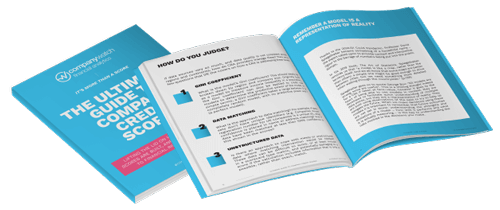Why You Should Run Company Credit Checks

Running regular company credit checks on your own company is standard procedure, often built into the organisational structure of the business. However, it is just as important, if not more, to conduct a company credit check on a business you’re looking to partner with or a supplier you wish to work with. This is true not just at the start of a partnership, but regularly throughout the partnership as well.
Hundreds of companies trust Company Watch to conduct their company credit checks during M&As, supplier onboarding, and other long-term partnerships. But what are you set to gain from conducting one? And what exactly is the process behind it?
In this blog post, we familiarise you with the following:
- Why you should run a company credit check
- How a business credit rating is calculated
- Analysing a business credit report
Why you should run a company credit check
Prevent bad debt
Businesses that experience bad debt are 3x more likely to go out of business within 12 months. A company credit check helps you identify businesses with a history of late payments or defaults. By understanding a company's financial stability and generating a business credit rating, you can avoid entering into high-risk agreements and minimise the likelihood of bad debt.
Protect your cash flow
Studies show that 43% of businesses report late payments as their biggest cash flow challenge.
A company credit check allows you to assess a company's ability to pay invoices on time, subsequently reducing your financial risk as a result of late payments. By working with financially sound businesses, you can maintain a healthy cash flow and ensure the smooth operation of your business.
Identify potential fraud
In the UK, fraud costs businesses almost £200 billion each year. This is why in-depth company credit checks are so crucial - they protect your company from financial loss, reputational damage, and long-term insolvency risk. A comprehensive credit check can highlight red flags that may negatively impact your business early on.
Company Watch’s fraud detection tool, Vigilance™, allows you to proactively identify any risk indicators that may harm your business down the line. It gives you a competitive edge against fraud by scouring millions of data points to highlight discrepancies and inconsistencies - critical information that you can use to make decisions about lending, partnering, and supplier onboarding.
How a business credit rating is calculated
There may be a number of hidden factors that go into generating a business credit rating through a company credit check. At Company Watch, we lift the lid on credit scoring and how models are built, explaining how each agency is different.
Our approach is to focus on single attributes of risk and provide a level of explainability about why a company is scoring well or badly. Our H-Score® takes a deep-dive into the underlying financial health of a company - providing an overall score along with the contributing factors to the score.
Our checks also include our TextScore®, which analyses the text inside financial reports. This model can be used in a similar way to the traditional score i.e. as a segmentation tool for multiple companies, but it is also used by people who require a deeper understanding of individual risks (typically people in strategic procurement and customer planning) because of the longer-lens view of risk these scores provide.
For risk managers using internal data and models, a third-party score that concentrates on a single, defined area of risk can be a useful additional input in the risk management process and can avoid the problem of double-counting, or placing too much weight on the same factor.
Analysing a business credit report
When analysing a business credit report, always consider the specific industry context in which the company operates. Evaluate the company's financial performance relative to industry benchmarks and trends. This will help you assess whether the company's performance is exceptional, average, or below par compared to its peers. At Company Watch, we do this by providing an industry average score along with the score calculated for the company you’re looking at.
To enhance your analysis, you can cross-reference the information in the credit report with other publicly available data sources. This includes the company's official website, social media profiles, and industry-specific databases. By comparing and contrasting information from multiple sources, you can identify potential inconsistencies or discrepancies that may warrant further investigation.
Company Watch’s host of business intelligence solutions allows you to generate accurate and easy-to-understand credit reports, with in-depth analyses that you can use to make informed business decisions. To that end, having Company Watch in your credit check toolkit enables you to get a more holistic understanding of the company you are analysing.
Key takeaways
- Regular company credit checks allow you to avoid bad debt, protect your business’s cash flow, and identify and prevent potential fraud.
- 3 key elements go into a business credit rating: company information, financial information, and a comprehensive risk assessment.
- Company Watch’s host of business intelligence solutions allows you to generate accurate and easy-to-understand business credit reports.

